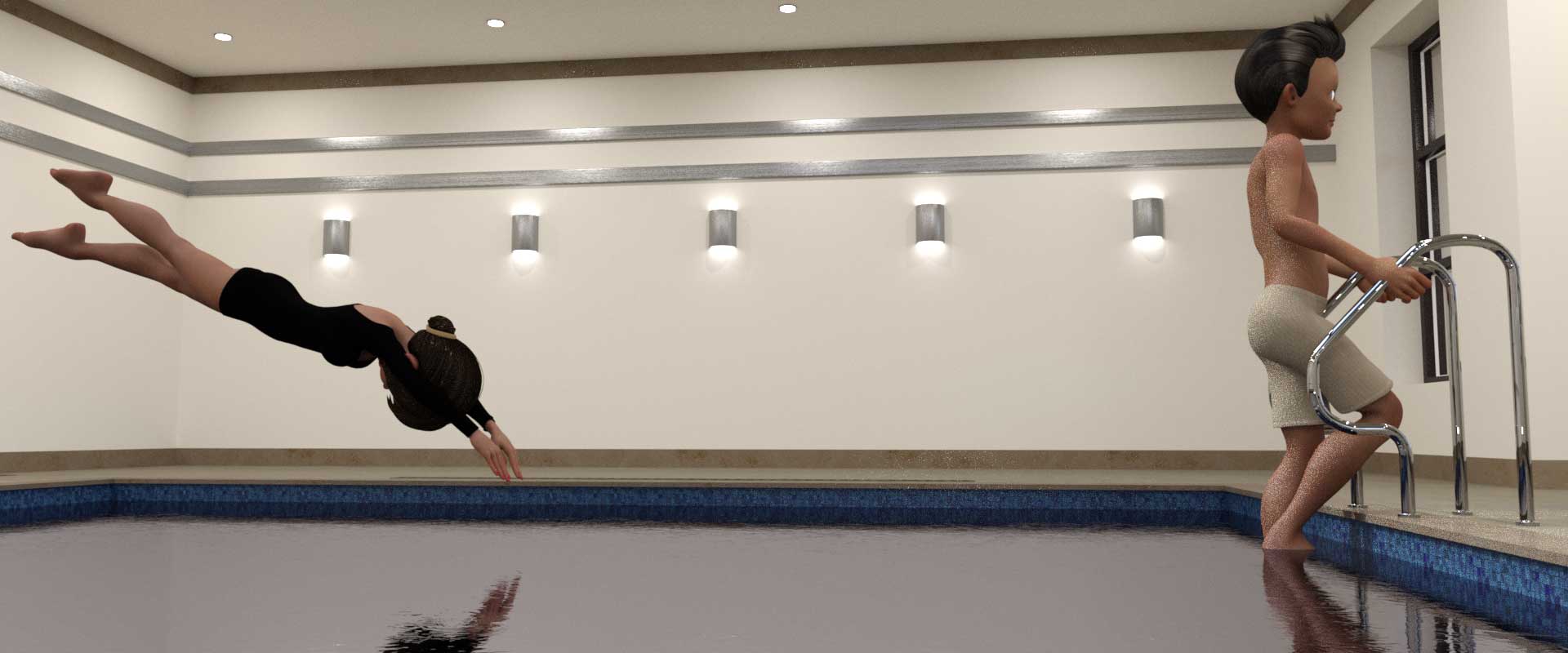
Swimming is an excellent way to stay in shape and get cardio while relaxing. But it’s also a great activity for your mental health and well-being thanks to the benefits it has on your body and mind.
In this article, we’ll explore the many benefits of swimming and discuss why people of all ages should take up this hobby as often as possible. Read on to learn more about how swimming can help you feel better, be healthier, stronger, happier, and live a more fulfilling life.
Swimming is an excellent exercise for strengthening your muscles and improving their flexibility. With every stroke, you use your arms, legs, and core, increasing muscle endurance and strength.
Swimming is a great cardiovascular exercise, burning calories quickly so you won’t tire as quickly from your workouts. You’ll also get a great workout while experiencing the many benefits of swimming, including improved lung and heart fitness, stronger bones and muscles, and weight loss.
Swimming is an excellent way to strengthen your heart and lungs, increasing lung and heart fitness. Swimming also uses your hips, shoulders, and core, which strengthens every part of your body. Swimming can also improve your metabolism, helping you to lose weight by burning calories faster than other activities.
Finally, swimming can help you build a stronger immune system and fight disease.
Swimming is a great activity for your mental health, and can help you to get over depression and feel happier. Swimming provides a number of mental health benefits that make it a great hobby for anyone who needs a little extra help.
It is a great way for people to stay active and get their mind off of things. It can be a great stress reliever because it’s an activity that many people enjoy and can fit into a schedule that allows for it.
By taking part in competitive or recreational swimming, people can find something they’re good at and enjoy as a hobby while also building confidence and self-esteem. Swimming is also a great way to improve social skills and make friends.
Many swimmers have found that they have become more confident and assertive in other situations outside of the pool.
Swimming is a low-impact sport that strengthens muscles and increases bone density. It builds endurance and cardio fitness by using your muscles for extended periods of time.
Swimming improves lung and heart fitness, increasing your ability to exercise for longer periods of time without getting tired as easily as you would running or lifting weights. It also strengthens bones because swimming uses your arms and legs as well as your core and upper-back muscles, easing the natural wear and tear on your bones that occurs throughout your life.
Swimming can help you build muscle and boost your metabolism.
To sum up: swimming is an excellent low-impact exercise that can help you lose weight, get fitter and build muscle.
Swimming is a great activity for improving your heart and lung fitness. Swimming increases your heart rate and strengthens your cardiovascular system, giving you stronger muscles and a healthier heart.
Swimming is also a great way to stay fit as you age. As you age, muscles naturally lose size and strength, even if you don’t develop any medical conditions that cause your muscles to shrink. Swimming is an excellent way to combat this age-related decline in your fitness level.
It’s a low-impact activity that can help you build strength and endurance without putting stress on your joints. Swimming is one of the best exercises for your heart and lungs. It works your heart and lungs by increasing your heart rate and breathing rate, strengthening your cardiovascular system and increasing your lung capacity.
Swimming is a low-impact activity that can help you increase your metabolism and lose weight. It uses your muscles and burns calories, boosting your metabolism and helping you to burn fat. Swimming can also help you maintain a healthy metabolism, giving you the energy you need to stay fit and active as you age.
Low-impact activities like swimming cause your metabolism to work at a low rate, causing your body to burn fewer calories than if you were working out hard using weights or running on a treadmill. This means you don’t have to exercise as much to get the same results, helping you to lose weight and keep your metabolism high.
Swimming is a low-impact activity that can improve your mood and strengthen your social skills. It can help you prevent depression by being a low-stress hobby that doesn’t require much commitment or money. Swimming can also help you build confidence and social skills by giving you a healthy activity to focus on while building self-esteem.
Many swimmers have found that they’ve developed more confidence and assertiveness outside of the pool, helping them to be more successful in their daily lives.